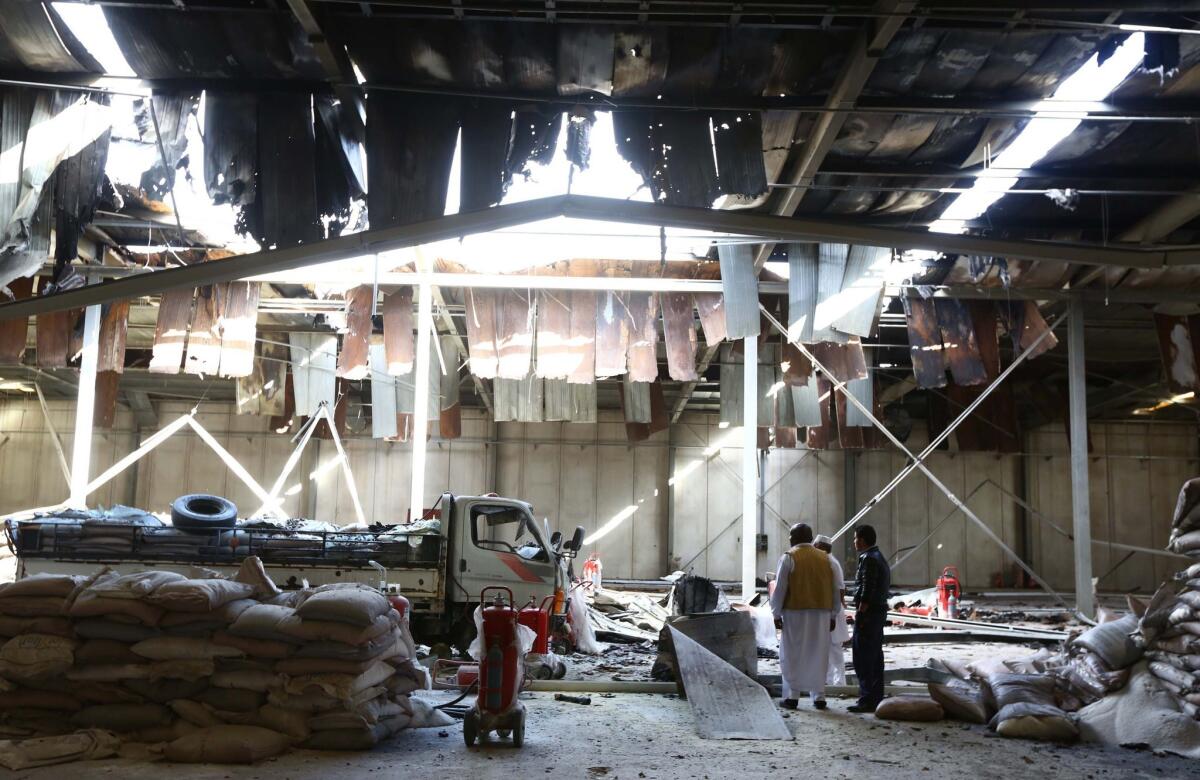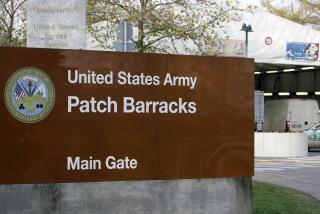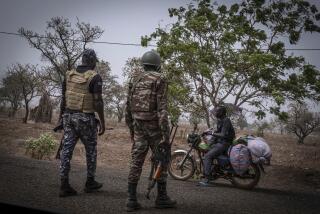U.S. concern grows over Islamic State fighters training in Libya

Fighters for the Islamic State militant group have been training in remote areas of Libya, heightening the Obama administration’s concern about a country that U.S. officials have largely ignored since its 2011 revolution.
Training camps with several hundred Islamic State fighters have been spotted in parts of eastern Libya, and some U.S. intelligence reports suggest a new presence for the militant group near Tripoli, in the country’s west, U.S. officials disclosed in recent days.
Although the officials say no immediate military response is planned, the appearance of the camps is giving new impetus to a debate about whether the United States eventually will need to expand its campaign against the militants beyond Iraq and Syria.
Islamic State “is exploiting vast, ungoverned spaces in Libya,” Sen. Marco Rubio (R-Fla.) said this week during a Senate hearing aimed at coming up with a new legal authorization for U.S. military involvement in the Middle East.
In 2011, the Obama administration organized the NATO air campaign that led to the downfall of former Libyan leader Moammar Kadafi and the country’s dissolution into a many-sided civil war. President Obama, in an interview in August, said the failure of the U.S. and its allies to do more for Libya after Kadafi’s fall was his biggest foreign policy regret. Even so, U.S. officials have largely left efforts to broker peace in the country to European officials and have been deeply resistant to the idea of a renewed U.S. military role.
But the growth of a terrorist threat in a chaotic country about the size of Texas stirs alarm in Washington. Such a threat was a chief danger cited by critics of the 2011 intervention, including former Defense Secretary Robert M. Gates.
The militants appear to have multiple training camps in eastern Libya, officials said. The groups in Libya apparently don’t include higher-ranking Islamic State fighters preparing terrorist operations, officials said.
U.S. Army Gen. David Rodriguez, chief of Africa Command, said at a Dec. 3 Pentagon briefing that the operations seemed “very small and nascent.… We’re watching it very carefully to see how it develops.”
Retired U.S. Marine Gen. John Allen, special envoy for the U.S. effort against Islamic State, said Thursday in an appearance at the Woodrow Wilson International Center for Scholars in Washington that U.S. officials were still trying to determine whether the fighters they have detected are Libyan Islamists who are seeking to affiliate themselves with Islamic State or people who have arrived from the organization’s center in Iraq and Syria.
Rep. Mike Rogers (R-Mich.), outgoing chairman of the House Intelligence Committee, told reporters Friday that of 21 Al Qaeda affiliates around the world, half have offered support to Islamic State.
Fighters in Libya who have sworn allegiance to the group are in control of a portion of the eastern coastal city of Derna. They are patrolling the area to try to enforce Islamic morality, and they have set up Islamic courts and raised the group’s black flag.
Frederic Wehrey, a longtime Libya analyst at the Carnegie Endowment for International Peace, predicted that the United States will follow a policy of “overwatch and containment,” and not intervene unless officials believe the threat has grown more urgent.
There are several reasons not to get involved, he said. The United States could complicate the United Nations-led effort to broker a peace deal if Americans appeared to take sides in Libya’s civil war, he said.
And there is the risk of another entanglement in a messy open-ended conflict.
The apparent creation of a new terrorist base “pushes all the buttons in Washington, but we have to make sure they’re not pushed in a way where we get entangled,” he said.
U.S. officials, who are operating from the embassy in Malta because of the risks of operating in Libya, have generally been cautious in their involvement with the North African country. They have delayed plans to begin training a Libyan force until the country stabilizes, Wehrey said.
Some analysts warn that, unlike the United States, European countries can’t wait to act on Libya because the chaos there threatens the Mediterranean region with flows of refugees, arms and drugs, as well as Islamist militants.
Simple containment “could be enough to achieve the American strategic objectives, but it would not solve the problems for Europe,” said Wolfgang Pusztai, a longtime Libya analyst who is based in Vienna.
Times staff writer Brian Bennett contributed to this report.
Follow @richtpau for coverage of international news
More to Read
Sign up for Essential California
The most important California stories and recommendations in your inbox every morning.
You may occasionally receive promotional content from the Los Angeles Times.






